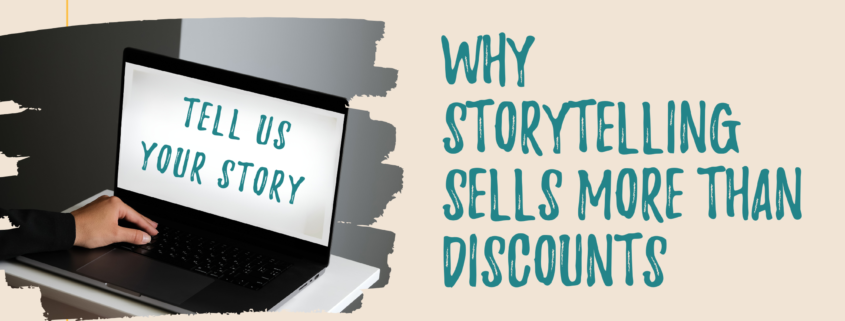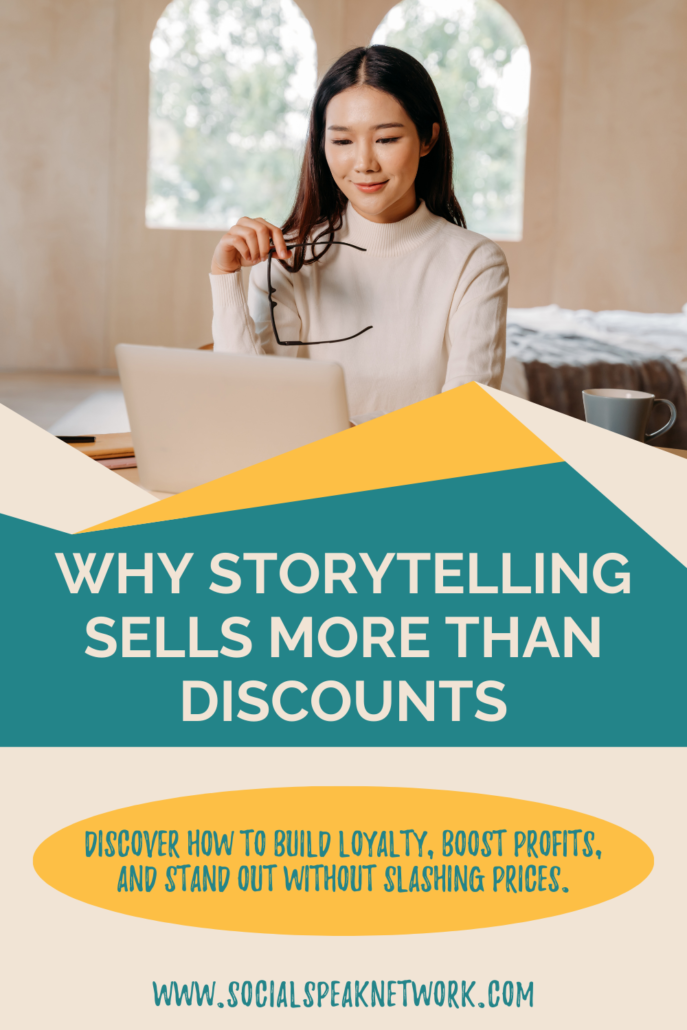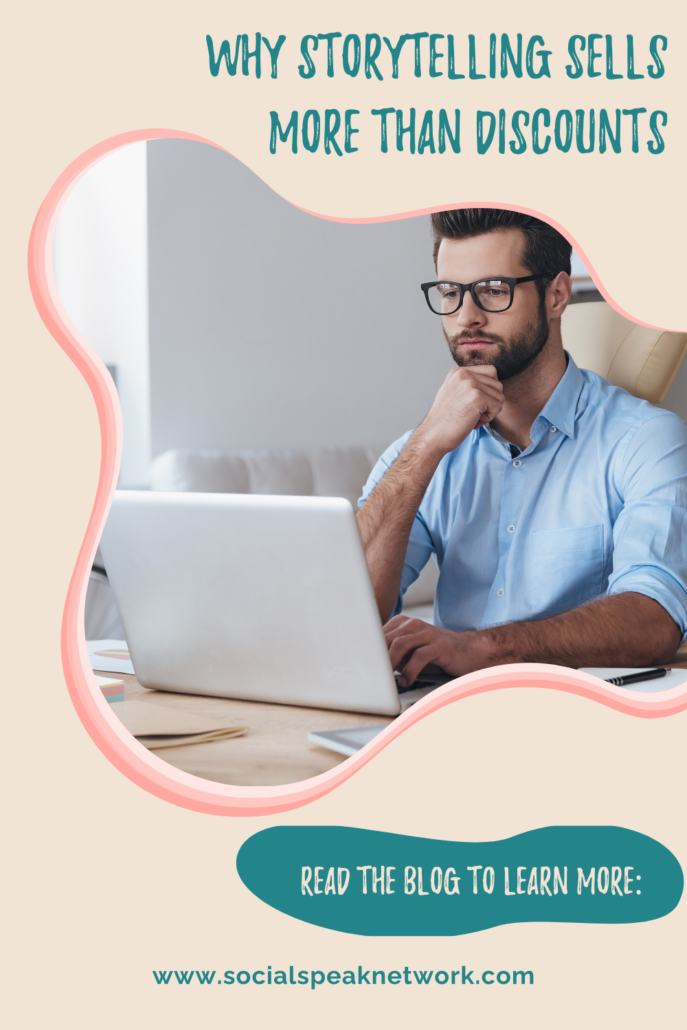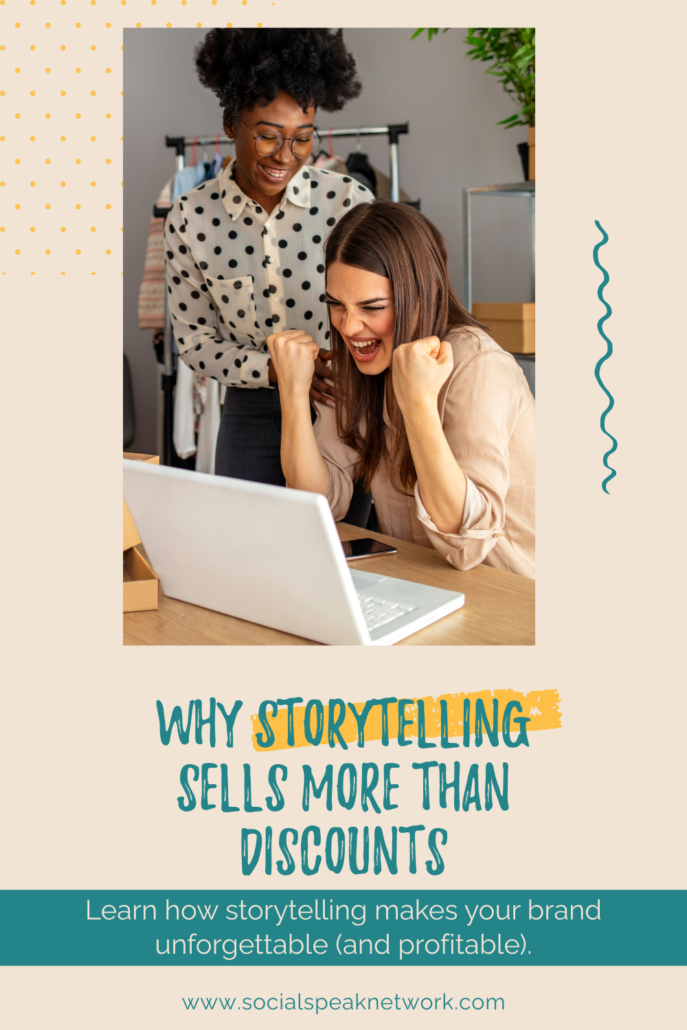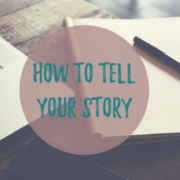When sales slow down, many small business owners reach for the easiest lever to pull: discounts. Slash prices, post a “limited-time offer,” and wait for the orders to roll in.
Sure, it works…. Temporarily! But here’s the problem: discounts may give you a short-term bump, but rarely build lasting growth. In fact, they often hurt your brand more than they help.
If you want consistent sales and loyal customers, there’s a better strategy: storytelling.
The Downside of Relying on Discounts
Discounts feel safe because they’re simple. Lower the price, and watch sales spike. But over time, they can hurt your business more than help it.
Here’s why:
- They train your customers to wait. If people know you’ll run a sale soon, they’ll hold off until prices drop.
- They attract bargain-hunters, not loyal fans. These customers care more about the deal than your brand.
- They eat into your profits. You can’t win a long-term price war unless you’re a big brand.
- They make you blend in. Competing on price alone makes you just another option. People can easily forget your brand once the discount ends.
Why Storytelling Works Better Than Discounts
Discounts might grab attention in the short term, but they train customers to see your brand as a bargain instead of something valuable. The moment a competitor offers a lower price, you risk losing them.
Storytelling, on the other hand, builds something discounts never can: an emotional bond. People don’t just buy what you sell. They buy into the meaning and the feeling behind it.
A strong story makes your brand memorable. It shows who you are, what you stand for, and why your business matters. When customers connect with that, price becomes less important. They’re not comparing cents; they’re choosing you because your story resonates. And that connection turns one-time buyers into loyal fans who stick around long after the sale.
Real-Life Examples of Storytelling in Action
Take, for example, a local café that shares how it partners with small farmers. They highlight the farmers’ dedication, the care that goes into every bean, and how each cup connects customers to a larger story of community and sustainability. Suddenly, that latte isn’t just a drink; it’s part of something meaningful.
Or think about a fitness coach who shares his story about being bullied as a kid. He grew up overweight and was often teased for his appearance. Until one day, he decided to change. He hit the gym, became obsessed with learning about fitness.
When he tells this story, clients don’t just see a trainer. They see someone who’s walked the same difficult path they’re on. That authenticity creates trust and inspires them to believe, “If he can do it, so can I.” And that emotional connection is far more powerful than any discount on training sessions.
How Small Businesses Can Use Storytelling
The good news? You don’t need a Hollywood scriptwriter to tell stories that sell. Here are a few simple ways to start:
- Share your “why.” Why did you start your business? What drives you?
- Tell customer success stories. Highlight how your product or service changed someone’s life.
- Show behind-the-scenes moments. Introduce your team, your process, or even your struggles.
- Tie your brand to values. Whether it’s sustainability, community, or empowerment, show what you stand for.
- Use storytelling across platforms. Weave stories into your website, social media posts, emails, and ads.
When Discounts Make Sense
Of course, this isn’t to say discounts never have a place. Strategic discounts can be incredibly effective when used thoughtfully. For example, offering a limited-time promotion to launch a new product can spark curiosity and bring in first-time buyers who might not have discovered your brand otherwise.
Discounts can also work well during seasonal events, holidays, or when you need to clear out inventory to make space for something new.
The key is ensuring your audience understands the “why” behind the discount. It should feel intentional, not desperate.
Final Thoughts
Discounts may grab attention, but stories build relationships. And relationships are what create repeat customers, word-of-mouth referrals, and long-term success.
So, ask yourself: Are you training people to wait for your next sale? Or are you giving them a story worth remembering?
Because people may forget your prices, but they’ll never forget your story.

